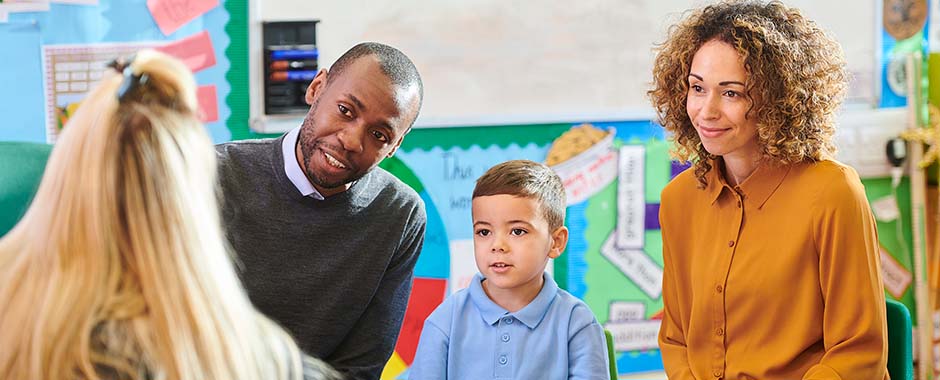You’ve just left your child’s parent-teacher conference, and your mind is swimming. Maybe you heard that your energetic second-grader is struggling to stay focused during math. Perhaps your quiet middle-schooler isn’t participating in class discussions. Or you learned your “everything’s fine!” high schooler has missing assignments piling up. If you’re feeling overwhelmed, you’re not alone. Parents often leave these conferences with a mix of emotions: concern about challenges, pride in achievements, and sometimes uncertainty about what to do next.
Here’s the good news: this moment—when you connect with your child’s teacher about their performance—can be a powerful turning point. The hours and days immediately following your parent-teacher conference are crucial for setting up long-term success.
Here are five proven strategies to transform feedback into real results:
1. Create a “Conference Capture”
Don’t trust your memory—our brains typically forget 40% of new information within 24 hours. Grab your phone or notebook and record those key points while they’re fresh. Think of it like being a detective—your notes become valuable clues for helping your child succeed!
Be sure to jot down:
- Specific examples the teacher shared
- Areas where your child is thriving
- Challenges that need attention
- Strategies the teacher recommends
- Any resources or support services mentioned
- Next steps and timelines discussed
2. Make a Kitchen-Fridge Action Plan
Look through your notes and pick ONE thing to tackle first (trust me, baby steps win this race). Write out a plan that works for your family, then post it where everyone can see it. Keep it simple: “20 minutes of reading before screen time” or “Homework happens right after snack.” The key to getting your kid to stick to the plan is making it visible and easy to follow.
3. Keep the Conversation Going
Think of regular parent-teacher communication like building a bridge—each interaction strengthens the connection between home and school. Set up a manageable way to exchange updates with your child’s teacher—whether through email, a school app, or brief weekly check-ins. Think of it as creating a feedback loop that catches small issues before they become big challenges. The impact can be remarkable: one study from Brown University showed that when teachers and families maintained frequent contact, homework completion rates jumped by over 40% and students stayed on task 25% more during lessons (Kraft and Dougherty, 2013).
4. Set Your Kid Up for Success at Home
Removing distractions and establishing routine study times helps students develop better self-regulation skills. Create a homework spot with minimal distractions, good lighting, and all the supplies your child needs to complete their assignments. Even small changes in your kid’s learning environment can lead to big improvements!
5. Watch for the Win!
How you respond to your child’s progress can significantly impact their motivation and resilience. A large-scale study of 10,000 students (Yeager et al., 2019) found that students with a growth mindset were more likely to maintain high academic achievement and showed greater resilience when facing challenges. The key finding: celebrating effort and improvement, rather than just outcomes, helps develop stronger learning behaviors over time.
The Bottom Line
Think of parent-teacher conferences like getting a GPS update on your kid’s educational journey. Sometimes you need to recalculate the route, and that’s totally okay! The most important thing? Your child has a whole team ready to help them shine.
Remember: Every kid moves at their own pace. Some zoom through reading but need extra time with math. Others are social butterflies but could use help staying focused. Whatever comes up in your conference, you’ve got this—and now you’ve got a plan to prove it!
Finally, don’t be afraid to reach out for support. Our experienced parent consultants can help you process feedback from your parent-teacher conference and create a personalized action plan for your family. Our clinicians also offer psychological and neuropsychological assessments, and can help determine if your child could benefit from an Individualized Education Plan (IEP) or 504 Plan.
Reach out to our team for a free consultation and set your child up on the path to success today!
Elisa Magidoff is the Parenting Program Manager at the Center for Children and Youth. She has over 30 years of experience guiding families to improve behavioral, social-emotional, and learning outcomes for children.



